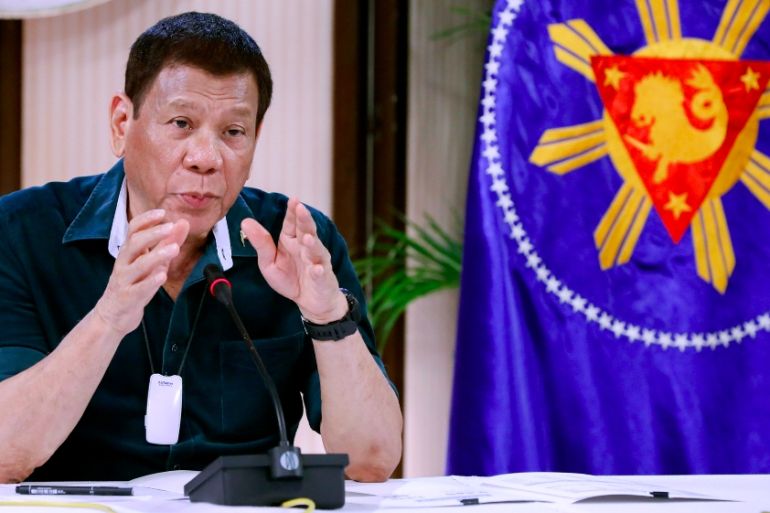No school until coronavirus vaccine is available: Duterte
Philippine president says without a vaccine, sending children to school ‘spells disaster’.

Philippine President Rodrigo Duterte has said he will not allow students to go back to school until a coronavirus vaccine is available, even as some countries resume in-person classes.
Without a vaccine, sending children to school “spells disaster”, Duterte said during a televised address late on Monday.
Keep reading
list of 3 itemsTyphoon Vongfong hits Philippines, coronavirus hampers evacuation
Philippines plans to build its way out of coronavirus downturn
“I will not allow the opening of classes where students will be near each other,” he added. “Unless I am sure that they are really safe, it’s useless to be talking about opening of classes.”
Children were due to return to school at the end of August after classes for more than 25 million primary and secondary students were shut down in March as the contagion took a firm hold in the Philippines.
But Duterte said the risk was too great, even if it held students back academically.
“For me, vaccine first. If the vaccine is already there, then it’s okay,” he added. “If no one graduates, then so be it.”
There is currently no vaccine available and no known treatment to cure COVID-19, the highly infectious respiratory disease caused by the new coronavirus. Though researchers across the world have launched an unprecedented effort to quickly develop a vaccine, it is not clear when a viable candidate will be proven and distributed on a large scale.
“The coronavirus has not disappeared despite social distancing and it will continue to spread until there is a vaccine,” infectious diseases expert Amesh Adalja of the Johns Hopkins University Center for Health Security told Al Jazeera.
“We will have a second and even third wave if there is no vaccine,” he said. “We do know that coronavirus is, in general, accelerate their spread in the fall and winter as environmental conditions favour their transmission.”
|
|
There have been 14,319 confirmed coronavirus cases in the Philippines as of Monday, including 873 deaths, according to the Department of Health.
Metro Manila and high-risk areas for infections are under relaxed lockdown until May 31, which has allowed some industries and business establishments to resume limited operations.
Public school normally runs from June to April in the Philippines, but authorities pushed back the start for August 24 as cases rose and a strict lockdown brought most of the nation to a halt.
But the Department of Education has stressed that “school opening will not necessarily mean traditional face-to-face learning in [the] classroom”.
“The physical opening of schools will depend on the risk severity grading or classification of a locality,” it said when it announced the new academic calendar.
In order to ease classroom crowding, the education ministry had announced a mix of distance-learning measures, including online classes, that would be used for the coming school year.
But millions in the country do not have access to computers at home, which would be key to the viability of online classes.
Some parents have turned to home-schooling their children, with the help of instructions from the schools.
The pandemic has kept children around the globe home for months, but in-person classes have begun to resume in countries including South Korea and France.